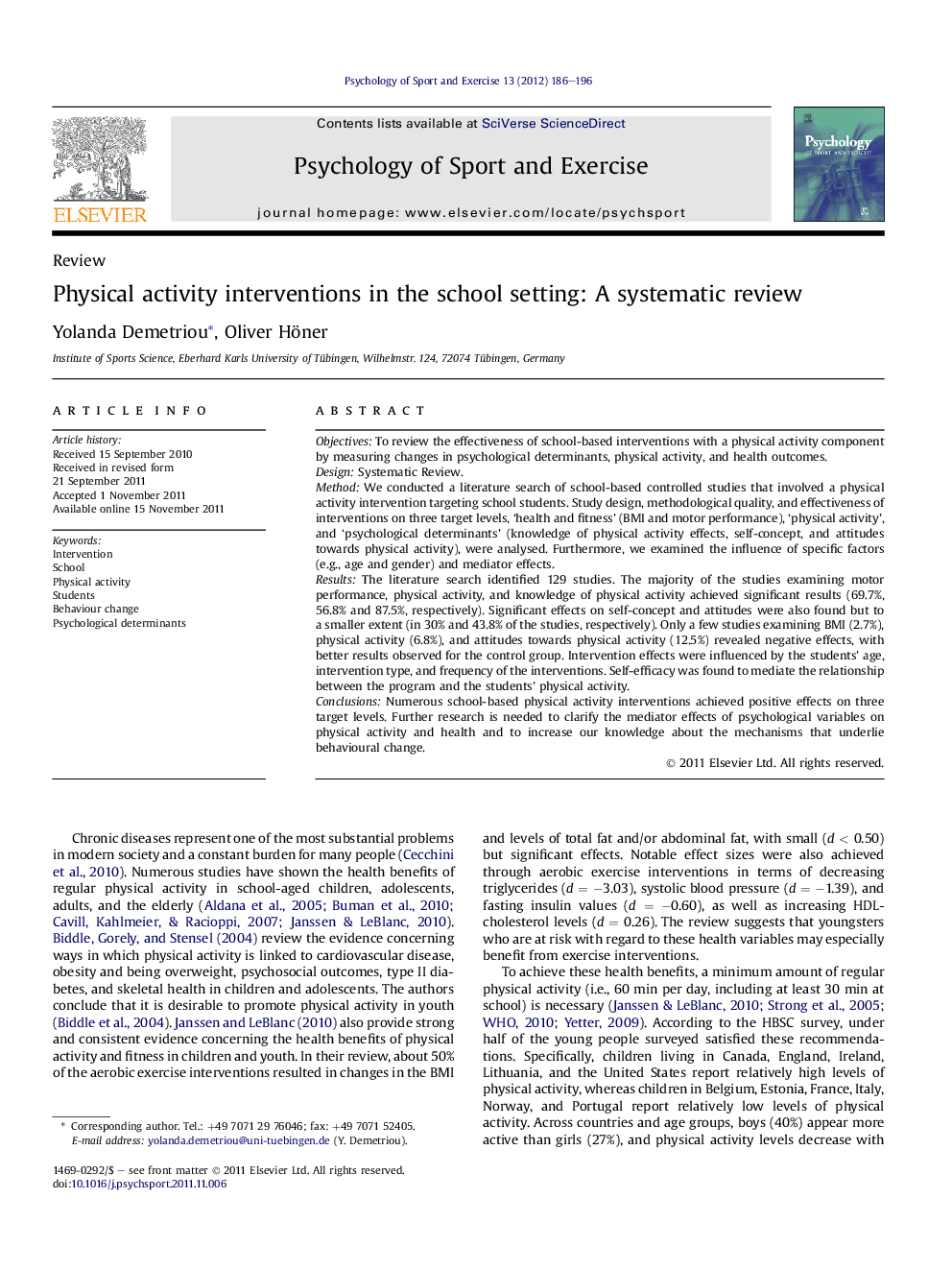| Article ID | Journal | Published Year | Pages | File Type |
|---|---|---|---|---|
| 894596 | Psychology of Sport and Exercise | 2012 | 11 Pages |
ObjectivesTo review the effectiveness of school-based interventions with a physical activity component by measuring changes in psychological determinants, physical activity, and health outcomes.DesignSystematic Review.MethodWe conducted a literature search of school-based controlled studies that involved a physical activity intervention targeting school students. Study design, methodological quality, and effectiveness of interventions on three target levels, ‘health and fitness’ (BMI and motor performance), ‘physical activity’, and ‘psychological determinants’ (knowledge of physical activity effects, self-concept, and attitudes towards physical activity), were analysed. Furthermore, we examined the influence of specific factors (e.g., age and gender) and mediator effects.ResultsThe literature search identified 129 studies. The majority of the studies examining motor performance, physical activity, and knowledge of physical activity achieved significant results (69.7%, 56.8% and 87.5%, respectively). Significant effects on self-concept and attitudes were also found but to a smaller extent (in 30% and 43.8% of the studies, respectively). Only a few studies examining BMI (2.7%), physical activity (6.8%), and attitudes towards physical activity (12.5%) revealed negative effects, with better results observed for the control group. Intervention effects were influenced by the students’ age, intervention type, and frequency of the interventions. Self-efficacy was found to mediate the relationship between the program and the students’ physical activity.ConclusionsNumerous school-based physical activity interventions achieved positive effects on three target levels. Further research is needed to clarify the mediator effects of psychological variables on physical activity and health and to increase our knowledge about the mechanisms that underlie behavioural change.
► Significant treatment effects on BMI, motor performance, PA and psychological determinants. ► Rare negative significant treatment effects on BMI (2.7%), PA (6.8%) and attitudes (12.5%). ► Intervention effects were moderated by students’ age, type and frequency of interventions. ► Mediator effects of self-efficacy between program and students’ PA. ► Most of the selected studies (70.5%) had a moderate methodological quality level.
